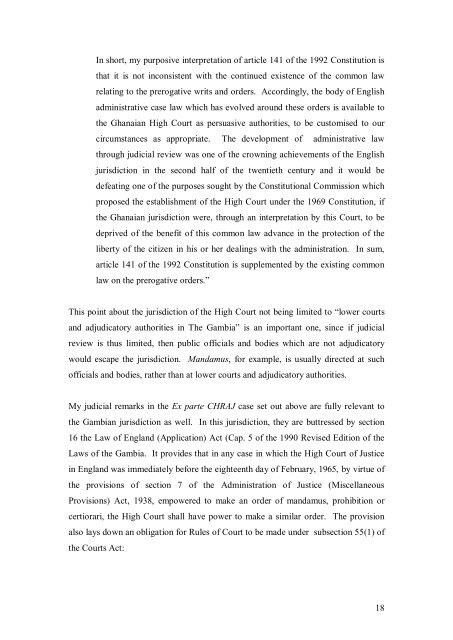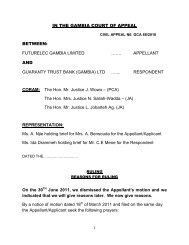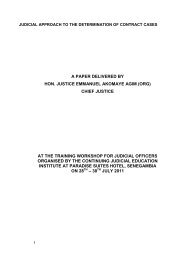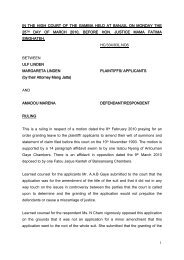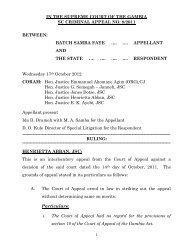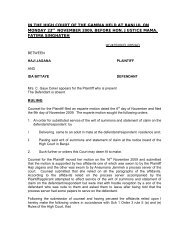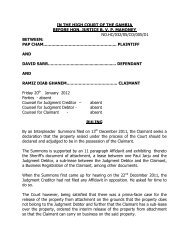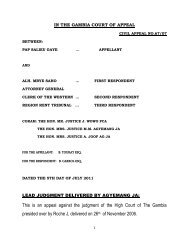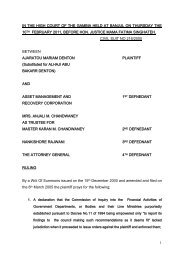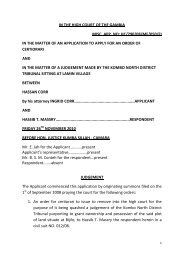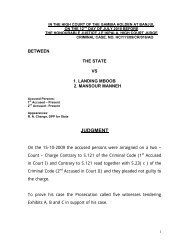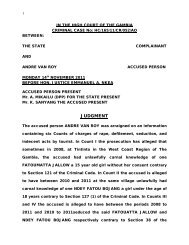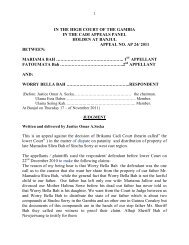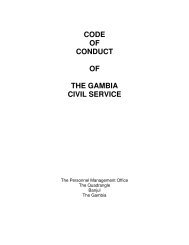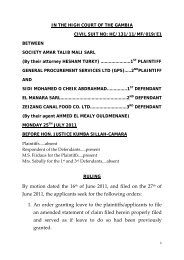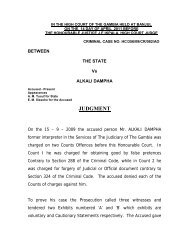1 THE LAW AND PRACTICE OF JUDICIAL REVIEW BY JUSTICE ...
1 THE LAW AND PRACTICE OF JUDICIAL REVIEW BY JUSTICE ...
1 THE LAW AND PRACTICE OF JUDICIAL REVIEW BY JUSTICE ...
Create successful ePaper yourself
Turn your PDF publications into a flip-book with our unique Google optimized e-Paper software.
In short, my purposive interpretation of article 141 of the 1992 Constitution is<br />
that it is not inconsistent with the continued existence of the common law<br />
relating to the prerogative writs and orders. Accordingly, the body of English<br />
administrative case law which has evolved around these orders is available to<br />
the Ghanaian High Court as persuasive authorities, to be customised to our<br />
circumstances as appropriate. The development of administrative law<br />
through judicial review was one of the crowning achievements of the English<br />
jurisdiction in the second half of the twentieth century and it would be<br />
defeating one of the purposes sought by the Constitutional Commission which<br />
proposed the establishment of the High Court under the 1969 Constitution, if<br />
the Ghanaian jurisdiction were, through an interpretation by this Court, to be<br />
deprived of the benefit of this common law advance in the protection of the<br />
liberty of the citizen in his or her dealings with the administration. In sum,<br />
article 141 of the 1992 Constitution is supplemented by the existing common<br />
law on the prerogative orders.”<br />
This point about the jurisdiction of the High Court not being limited to “lower courts<br />
and adjudicatory authorities in The Gambia” is an important one, since if judicial<br />
review is thus limited, then public officials and bodies which are not adjudicatory<br />
would escape the jurisdiction. Mandamus, for example, is usually directed at such<br />
officials and bodies, rather than at lower courts and adjudicatory authorities.<br />
My judicial remarks in the Ex parte CHRAJ case set out above are fully relevant to<br />
the Gambian jurisdiction as well. In this jurisdiction, they are buttressed by section<br />
16 the Law of England (Application) Act (Cap. 5 of the 1990 Revised Edition of the<br />
Laws of the Gambia. It provides that in any case in which the High Court of Justice<br />
in England was immediately before the eighteenth day of February, 1965, by virtue of<br />
the provisions of section 7 of the Administration of Justice (Miscellaneous<br />
Provisions) Act, 1938, empowered to make an order of mandamus, prohibition or<br />
certiorari, the High Court shall have power to make a similar order. The provision<br />
also lays down an obligation for Rules of Court to be made under subsection 55(1) of<br />
the Courts Act:<br />
18


